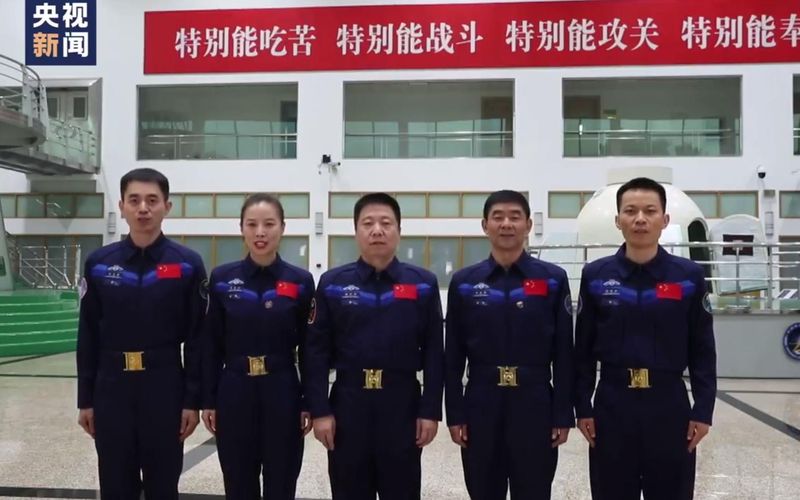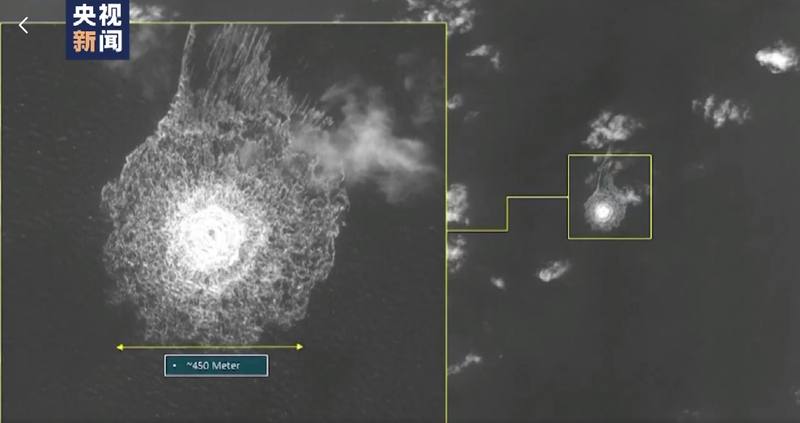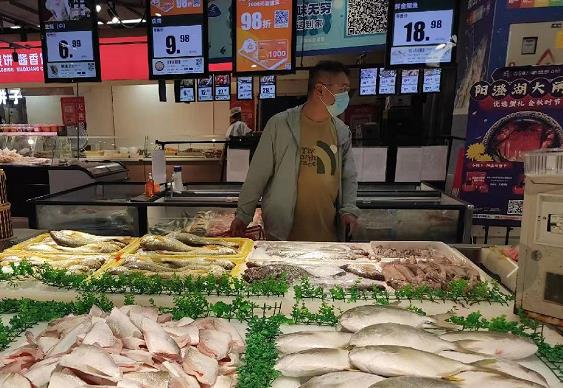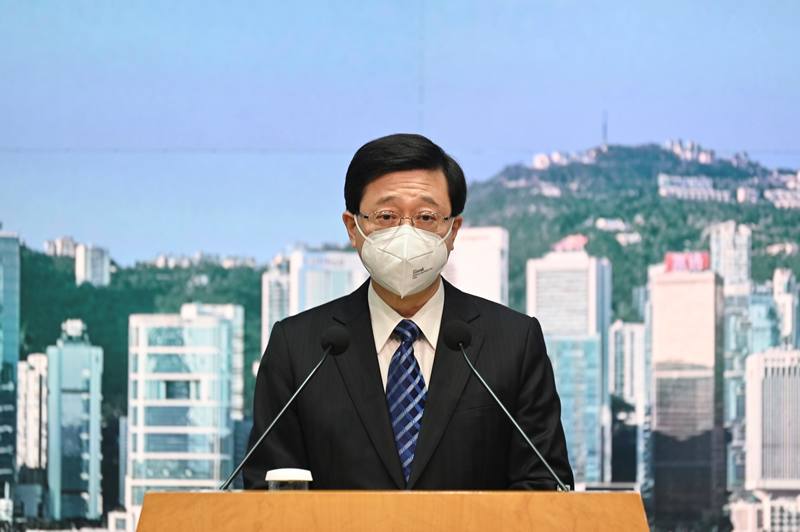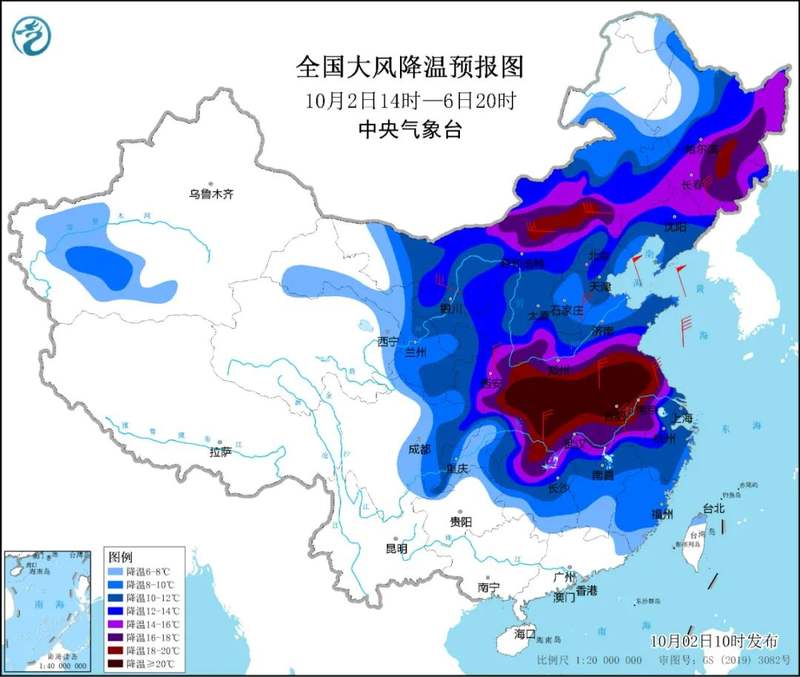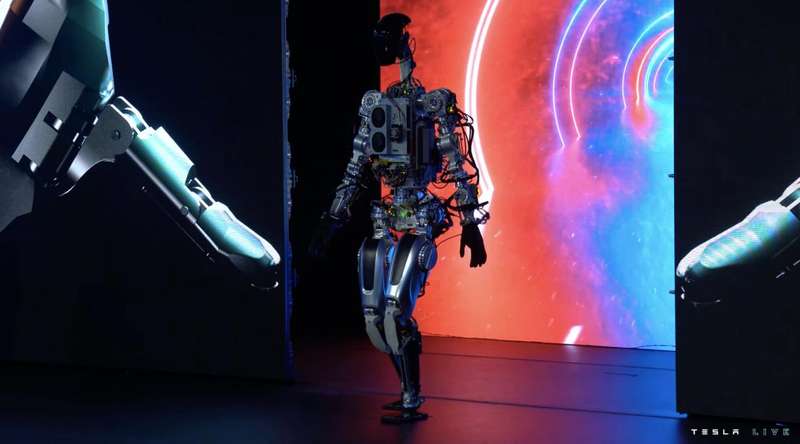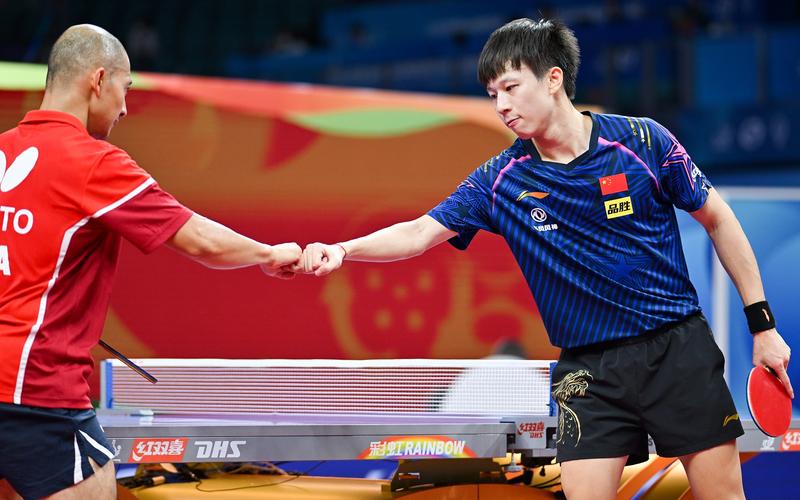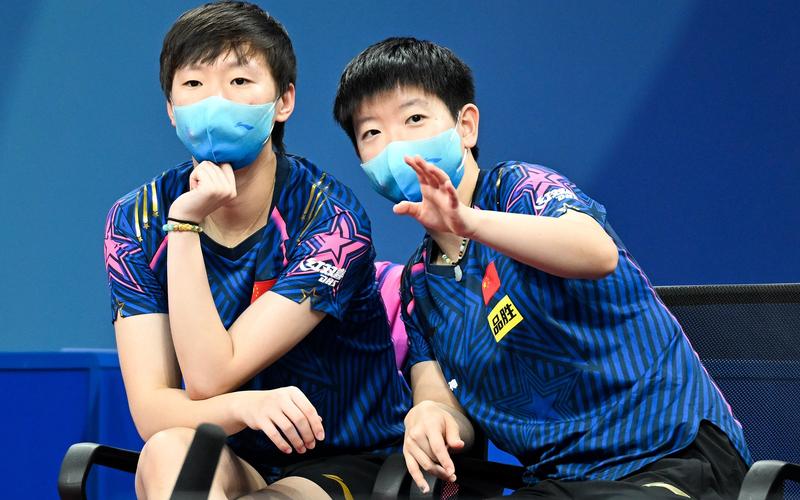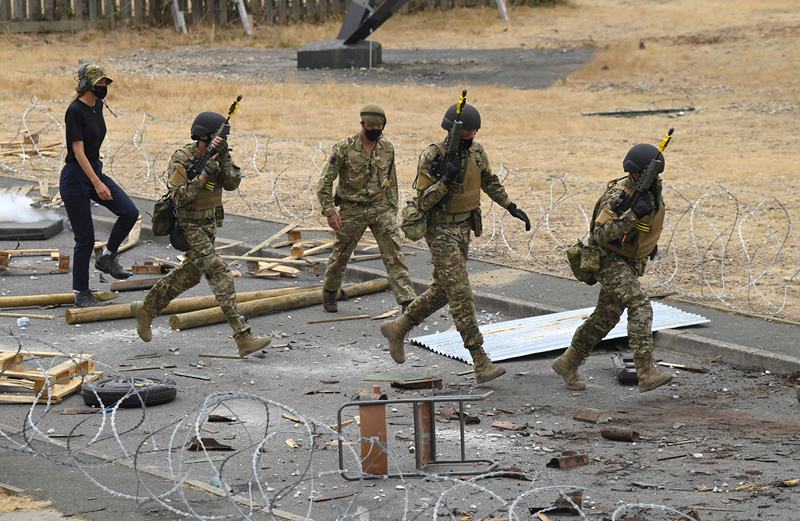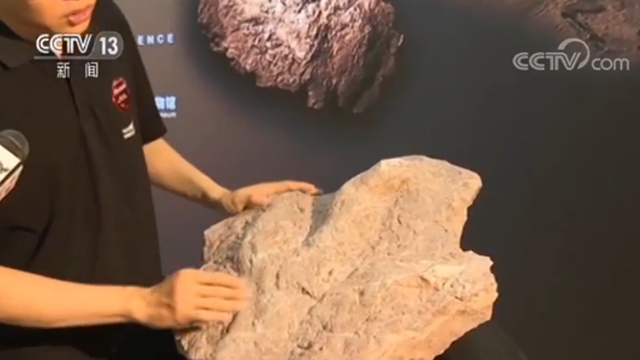Press conference video
At 10: 30 on July 7, 2023, the Information Office of the Provincial Government held a press conference on the 2023 "Silk Road in the Air" International Competition for Urban Design and Creative Architecture in Zhengzhou Airport, Henan Province.
Release content:This paper introduces and interprets the overall situation of the 2023 "Silk Road in the Air" urban design and creative architecture international competition in Zhengzhou Airport, Henan Province, and answers questions from reporters.
Published by:
Dong Haili, member of the Party Group and Deputy Director of the Housing and Urban-Rural Development Department of Guangdong Province
Member of the Party Working Committee and Deputy Director of the Management Committee of Guopeng Airport Area
Director of Chen Guoqing Airport Natural Resources and Planning Branch
Director, Central Plains Medical Science City Command Office, Qinxindong Airport Port Area
Liu Huakai Chairman of Zhengzhou Airport Garden Expo Park Management Co., Ltd.
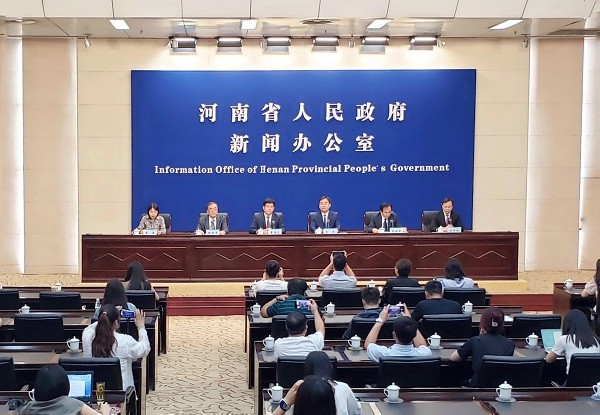
Ping Ping, Deputy Director of Propaganda Department of Provincial Party Committee and Director of Information Office of Provincial Government
Ladies and gentlemen, friends from the media,
Good morning everyone! Welcome to the press conference held by the Information Office of Henan Provincial People’s Government.
In order to further implement the "Design Henan" strategy of the provincial party committee and government, and promote the leap-forward development of the airport with a forward-looking view of 30 years and the world, the 2023 "Silk Road in the Air" international competition for urban design and creative architecture of Zhengzhou Airport in Henan will be officially launched. At today’s press conference, we are very pleased to invite the responsible comrades of the Provincial Department of Housing and Urban-Rural Development and the Airport Area Management Committee to attend, focusing on the promotion of "Design Henan" construction in our province and the launch of this international competition, and answering questions from media friends.
First of all, let me introduce the publisher who attended today’s press conference:
Mr. Dong Haili, member of the Party Group and Deputy Director of the Provincial Department of Housing and Urban-Rural Development;
Mr. Guo Peng, member of the Party Working Committee of the Airport Area and deputy director of the Management Committee;
Mr. Chen Guoqing, Director of Natural Resources and Planning Branch of Airport Area;
Mr. Qin Xindong, director of the headquarters office of Zhongyuan Medical Science City in the airport area;
Mr. Liu Huakai, Chairman of Zhengzhou Airport Garden Expo Park Management Co., Ltd.
Next, please first ask Mr. Dong Haili to introduce the relevant situation of promoting the construction of "Design Henan" in our province.
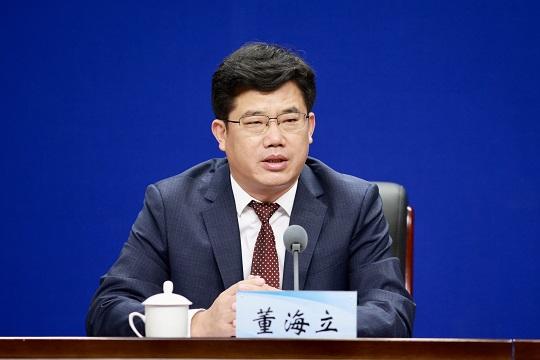
Dong Haili, Party Member and Deputy Director of the Provincial Department of Housing and Urban-Rural Development
Dear media friends:
Thank you for your long-term concern and support for housing and urban and rural construction in the province! The international competition of urban design and creative architecture held in this airport area is another concrete action to implement the strategic decision of "designing Henan" after the first international forum of "designing Henan as an aviation city and a global hub" was held in Zhengzhou Airport in March. I believe that the holding of this activity will definitely promote the economic and social development of the airport area. Taking this opportunity, I would like to introduce the relevant situation of promoting the construction of "Design Henan" in terms of doing a good job in urban and architectural design in the whole province.
The provincial party committee and government attached great importance to the work of "designing Henan", and Lou Yangsheng, secretary of the provincial party committee, personally arranged, deployed and listened to the work of "designing Henan". The provincial government has successively issued the Action Plan for Designing Henan Construction (2022-2025), the Medium-and Long-term Planning for Designing Henan Construction (2022-2035) and Several Policies and Measures for Supporting the High-quality Development of Design Industry in Henan Province. It is emphasized that urban modernization should be led by urban and architectural design, highlighting cultural heritage, distinctive features, green livability, wisdom and toughness. In order to implement the construction requirements of "Designing Henan" by the provincial party committee and the provincial government, the "Three-year Action Plan for Improving Urban and Architectural Design (2023-2025)" was issued around the overall requirements of "Improving Urban and Architectural Design", and it was proposed that through the implementation of the three-year action, the business environment of urban and architectural design industries in our province was continuously optimized, the industry scale was steadily increased, the creative level was continuously improved, and the core competitiveness was significantly enhanced.
First, implement beautiful urban design. First, we must strictly implement the "Implementation Opinions of the General Office of the People’s Government of Henan Province on Strengthening the Management of Urban and Architectural Styles", strengthen the style shaping of key areas and important buildings, coordinate the shape, color, volume and height of important buildings from the overall plane and three-dimensional space, and strengthen the control and guidance of urban skyline and public space. We must not only put an end to architectural chaos such as "greedy for foreign things and seeking strange things", but also avoid the phenomenon of "one city with one face and ten thousand buildings with one face". Second, we should fully implement the overall urban design, strengthen the design of urban center, main streets and important squares, integrate the most representative and identifiable cultural elements, and create landmark buildings with local cultural characteristics. Take landscape as an important component of urban design, strengthen urban ecological construction and restoration, prevent high-intensity construction, avoid "blind alley" development, leave enough open space, green space and public service facilities construction land, and build a beautiful urban spatial pattern of "patchwork, density, dew, ventilation and ventilation". Third, we should improve the design level of smart cities, strengthen the design and application of urban information models in urban construction and management, implement the intelligent transformation of municipal infrastructure, implement the unified management of urban operation, and implement the safety concept in the whole process of urban planning, construction and management.
Second, do a good job in architectural engineering design. First, we must implement the architectural policy of "applicability, economy, green and beauty" in the new period, design in strict accordance with laws and regulations and mandatory standards for engineering construction, and seriously investigate and deal with illegal and illegal survey and design behaviors that violate mandatory provisions. Second, we should inherit the excellent Central Plains culture in design and creation. Architects are required to deeply study the excellent history and culture of the Central Plains, the Yellow River culture and the regional culture, make bold innovations in engineering construction and urban renewal practice, form diversified local architectural styles, and promote the inheritance and innovation of excellent traditional architectural culture. Actively encourage technical forces to participate in rural construction, protect rural culture and village texture, and constantly improve the level of rural housing design and rural construction. Third, we should prosper design creation, carry out architectural criticism and architectural design research, promote the integration and sublimation of architectural design concepts, and constantly improve the original level of scheme design. Fourth, we should focus on providing good houses and communities for the people and improve the housing construction standards and design level. Promote green building design, optimize the spatial layout of residential areas, reasonably determine the upper limit of plot ratio and the lower limit of green space ratio of residential areas, and rationally allocate indoor and outdoor public activity spaces and venues for the elderly and children.
Third, strengthen the survey and design industry. First, we must promote the transformation and upgrading of enterprises. Support the integrated development of large enterprises, extend the industrial chain through joint operations, mergers and acquisitions, etc., carry out whole-process engineering consulting, and support qualified large-scale backbone enterprises to go public for financing; At the same time, small and medium-sized enterprises are encouraged to take the development path of "specialization and novelty" and cultivate a group of enterprises with strong industrial design strength in green buildings, ultra-low energy-consumption buildings, prefabricated buildings, urban landscape, municipal infrastructure construction, building intelligence and other special designs. Second, we must strengthen the introduction of talents. Encourage enterprises to introduce a number of high-end talents from inside and outside the province, strive to introduce academicians of the two academies and national survey and design masters, and set up academician workstations and master studios. We will also provide convenient services such as housing security and provident fund loans to those who meet the relevant talent identification standards, so that all kinds of talents can come in and stay. Actively develop the cultivation of young design talents. Third, we should focus on the activity of "one division, one competition, one evaluation and one project". The first division is to identify the "master of construction engineering survey and design in Henan Province", play a benchmarking and guiding role, and let outstanding talents stand out. The first competition is to hold the first "Good House in Henan" design competition. Mobilize the vast number of designers to focus on the overall goal of people’s satisfaction and produce more masterpieces. The first appraisal is to hold the selection of the most beautiful buildings and blocks. One topic is to carry out the research on the characteristics of traditional folk houses in Henan Province.
Fourth, optimize the market environment. The first is to strengthen industry supervision. Seriously investigate and deal with collusive bidding, subcontracting, linking, illegal subcontracting, lending qualification certificates, separation of witnesses and certificates, crack down on the phenomenon of setting discriminatory bidding terms according to law, and strive to create an open, fair and just market environment. The second is to improve the credit evaluation system of survey and design industry. Implement the application of credit evaluation results in project approval, bidding, evaluation and awards, and list the survey and design enterprises with excellent credit evaluation grades in the white list, and implement inspection exemption in the dynamic assessment of qualifications. The third is to encourage and guide the survey and design enterprises in our province and outstanding enterprises at home and abroad to jointly participate in major planning, major projects and major engineering design services inside and outside the province, so as to cultivate qualifications, expand strength and shape brands in actual combat. At the same time, we will also formulate incentive policies to reward enterprises that have made outstanding contributions to economic development and made outstanding achievements in industry development.
In the next step, in accordance with the work arrangements of the provincial party committee and the provincial government, we will work with relevant departments to solidly promote the design of Henan construction, fully support the urban construction and development of the airport area, and help design the high-quality development of Henan. thank you
Ping Ping, Deputy Director of Propaganda Department of Provincial Party Committee and Director of Information Office of Provincial Government
thank you Next, please ask Mr. Guo Peng to introduce the urban design and creative architecture international competition of Zhengzhou Airport 2023.
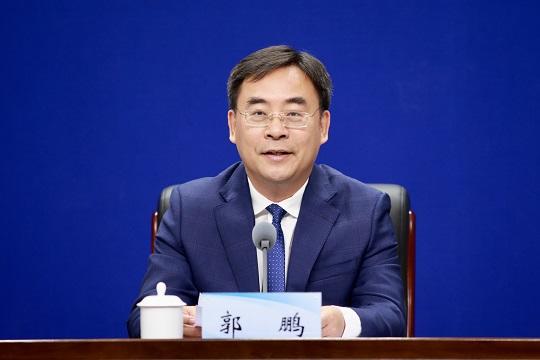
Guo Peng, member of the Party Working Committee and deputy director of the Administrative Committee of the Airport Area.
Dear media friends:
I am very glad to meet you in the press conference hall of the provincial people’s government and exchange views on the upcoming 2023 "Silk Road in the Air" international competition for urban design and creative architecture in Zhengzhou Airport, Henan Province.
The organizer of this international competition is Zhengzhou Airport, Henan Province, and it is also the well-known Zhengzhou Airport Economic Comprehensive Experimental Zone. The airport area covers an area of 747 square kilometers and is located in the golden triangle of Zhengzhou, Kaifeng and Xuchang. In 2013, the State Council was approved as the only aviation economic experimental zone in China. Since 2022, the provincial party committee and government have systematically reshaped and reconstructed the airport area. The five new strategic orientations of the airport are: the pilot area of "Aerial Silk Road", the National Airport Economic Experimental Zone, the Central Plains Economic Zone and the core growth pole of Zhengzhou Metropolitan Area, the modern and internationalized world-class logistics hub, and the Central Plains Special Zone; The five centers under construction are: international advanced manufacturing center, international trade center, international transportation and logistics center, international creative fashion center and international innovative talent center. The airport has become the growth pole of Zhengzhou’s development with great strategic value and the bull’s nose of Henan’s opening to the outside world.
In the next ten years, Zhengzhou Airport will be a new golden decade for its "second venture". On the basis of fully drawing lessons from the latest concept of Professor John Casada, the chief consultant of the airport area and the first person in the global aviation economy-international aviation metropolis version 4.0, we have extensively drawn opinions from all walks of life and planning experts at home and abroad, and divided the 747-square-kilometer airport core area into four major areas: southeast, southwest, central and north. According to the international functional division, we have determined that it includes "the window of the Central Plains, the aviation hub port, the Central Plains Medical Science City and the future"
The new golden decade airport can not be separated from planning and architectural design. High-quality planning and design is the premise of high-quality development and the "first button" of urban development. High-quality architecture is the art of urban mobility, and it is also the core competitiveness of a city to avoid a thousand cities and establish its image and brand.
In order to further implement the "Design Henan" strategy of the Henan Provincial Party Committee and the provincial government, promote the leap-forward development of the airport new golden decade with a forward-looking view of 30 years and the world, and open up an institutional channel for the world’s top planning, design, architecture and aesthetics talents to serve Henan’s development, we have planned the 2023 "Silk Road in the Air" urban design and creative building international competition of Zhengzhou Airport in Henan. After intense preparations, it was officially released to the world today.
This international competition is divided into three parts, one is the optimization and upgrading of the overall urban design of the whole region (focusing on 21 cities) and the urban design of the future city. Among them, the overall urban design optimization and upgrading (focusing on 21 cities) is within the jurisdiction of Zhengzhou Airport, covering an area of about 747 square kilometers. The urban design scope of the future city is: Chaohu Road in the north, Jiude South Street in the east, Yan Dou Avenue in the south and Hedong Road in the west. The second is the urban design of Zhongyuan Medical Science City, which covers Bohai Road in the north, Sunwu Road in the east, Nanhai Avenue in the south and Beijing-Hong Kong-Macao Expressway in the west. Thirdly, the conceptual design and deepening of the international cultural exchange center of Zhengzhou Airport Garden Expo Park. The site is located in the Garden Expo Park International Eco-city, covering an area of about 20 mu and a building area of 15,000 square meters. The purpose of this creative architecture competition is to attract new ideas from all over the world and provide opportunities and platforms for young and middle-aged new architects to participate in the construction and development of the port area. The three parts of the competition are released as a whole and promoted separately, and are coordinated by the airport management Committee.
In order to attract global planning and architectural design teams to participate in the development and construction of the port area, there is no qualification requirement for this competition, and global open registration is adopted. Design institutions and consortia at home and abroad can sign up for the competition, and individuals or combinations of individuals are not accepted. The contest adopts two registration methods: "Intention invitation+open solicitation". It is divided into two stages: "prequalification" and "scheme design and review". The first is the pre-qualification stage. Public announcement, domestic and foreign professional design institutions submit corresponding registration documents and concept proposals, and we will organize a pre-qualification meeting to select the finalists and enter the next stage together with the invited units. The second is the scheme design and review stage. After the short-listed design institutions submit the results documents that meet the requirements within the specified time, we organize a scheme review meeting and select the final winning scheme from the short-listed design schemes.
The 2023 "Silk Road in the Air" International Competition for Urban Design and Creative Architecture in Zhengzhou Airport, Henan Province will officially launch the pre-release and forecast name today. In July, the official announcement and the first-stage design task book will be released in three competition parts. In August, the prequalification results and the second-stage design task book will be released, and in October, the final evaluation results of the scheme will be announced in three competition parts. In order to cultivate and support the local planning and design forces in Henan and further enhance the influence of "designing Henan", the local planning and design team will be invited to participate in the whole process of this international competition for urban design and creative architecture, and the final achievement integration will be completed by the team that won the first place in the competition and the local planning team in Henan.
Dear media friends and comrades, this international competition for urban design and creative architecture of the airport is another international competition in Henan after the international bidding for the master plan of Zhengdong New District in 2001, after a lapse of 22 years. At that time, Zhengdong New District was also well-known at home and abroad because of international competitions. All parties praised Zhengdong New District as a "plan from the perspective of the world", and the international bidding scheme of the city at that time was "the crowning touch of new urban construction". Later, the image of Zhengdong New District as an international city became increasingly prominent, and the international bidding for planning in 2001 contributed greatly. After ten years of accumulation, the airport area also has the conditions to continue the internationalization strategy of Zhengdong New District and take off in an all-round way. Focusing on the goals of "designing Henan", "China’s aviation metropolis" and "a world-class model of the integration of production and city", the airport will hold an international competition on urban design and creative architecture every year, which will continuously transport design talents from all over the world for the high-quality development of Henan. This institutionalized arrangement of the airport will surely enhance the international reputation of Zhengzhou, Henan and even the whole inland area, let "Design Henan" go to the world, and let Zhengzhou Airport, the "Silk Road in the Air and Hub in the World", go to the world.
In order to run this international competition well at a high level, the whole region attaches great importance to it, and all units at all levels have carefully organized and deployed it, and have devoted a lot of energy and painstaking efforts. Here, I would like to express my respect and condolences to the comrades who organized the international competition. The high-quality development of Zhengzhou Airport in Henan Province is also inseparable from the concern and support of the news media. The new golden decade needs the full help and promotion of friends from the news media. Here, on behalf of the Party Working Committee and Management Committee of the Airport Area, I would like to express my heartfelt thanks to you! I urge you to actively participate in this international competition and follow up the whole process to witness an important step of internationalization, fashion and aesthetics of Zhengzhou Airport in Henan Province. thank you
Ping Ping, Deputy Director of Propaganda Department of Provincial Party Committee and Director of Information Office of Provincial Government
thank you Below, journalists and friends are welcome to ask questions about the content of this conference, and please inform your news organization before asking questions.
People’s Daily People’s Daily reporter
Just now, the publisher introduced the overall framework of the coordinated development of 21 cities determined by the airport, and also highlighted the future cities involved in this competition. Please tell us about the specific situation of the future cities. Thank you.
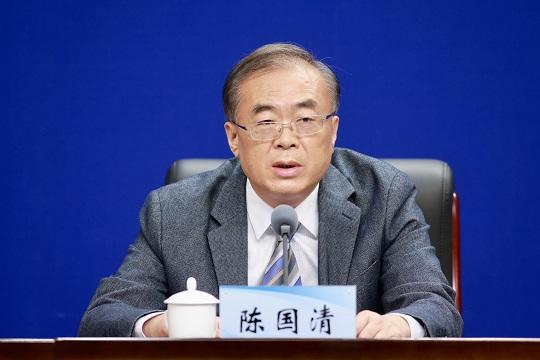
Chen Guoqing, Director of Natural Resources and Planning Branch of Airport Area
Thank you for your question. First of all, I would like to introduce the positioning of the future city to you. Located in the northern part of the airport, Future City is positioned as a world-class business center and a leading area for the innovation and development of digital economy. The leading industries are headquarters economy, cultural and sports entertainment, business technology services, artificial intelligence, cloud computing, industrial Internet, digital platform, etc. The key projects include Wanda Airport Xintiandi Project and provincial sports training center.
Judging from the current situation of the area, at present, urban trunk roads such as Taihu Road and Jingzhou Road have been completed and opened to traffic, and projects such as provincial talent apartments and provincial port food, drug and medical equipment inspection and testing centers have been put into use. The resettlement area of Hedong 1-3 Hecun and the city has been basically completed, and most of the land has not been developed and constructed, and there is still a large development space in the future.
The main tasks of this future city design are: to improve the overall development orientation and industrial function planning scheme of the area, as well as the overall planning and design concept, spatial pattern and functional layout scheme; On the basis of in-depth analysis of site characteristics and construction conditions, creative and practical design ideas are put forward, and design strategies are formulated in terms of space form, public space, landscape environment, building groups and characteristic transportation. In the deepening stage, urban design guidelines will be formed and incorporated into the next regulatory detailed planning and land transfer contract to effectively control various planning and construction work.
For the next step of construction, the area will implement the requirements of urban design management and control, learn from the experience of advanced areas, adopt the comprehensive development model of the area, and the management Committee will authorize Kechuang Group as the main body to be responsible for the construction of supporting facilities, industrial investment and urban operation in the area, and introduce social capital as a city partner to jointly carry out urban investment, construction and operation. At the same time, the first batch of infrastructure construction will be started first, the provincial sports training center will be built rapidly, the Wanda Airport Xintiandi project will be accelerated, the public service facilities will be improved simultaneously, public service resources such as quality education and high-end medical care will be actively attracted, the comprehensive service functions of cities such as business, headquarters office, culture, sports and entertainment will be improved, and a world-class business center and a leading area for digital economy innovation and development will be planned. thank you
Economic Daily reporter
Recently, Henan will rebuild the Provincial Academy of Medical Sciences, accelerate the creation of an innovative pattern of "one hospital, one city and one industrial cluster", and lay it out in the airport area. Excuse me, what advantages does the port have in medical research and industrial ecology? Next, how will the port serve the construction of the Provincial Academy of Medical Sciences? Thank you.
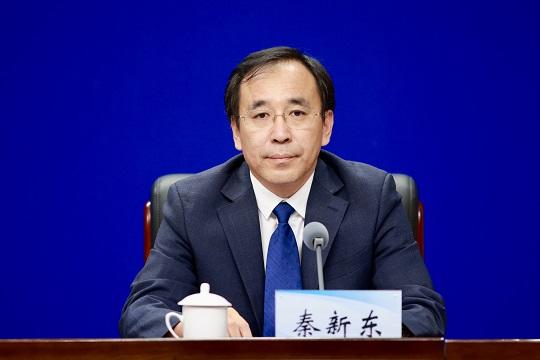
Qin Xindong, Director of the Headquarters Office of Zhongyuan Medical Science City in the Airport Area
Thank you for your question. Recently, the provincial party committee and the provincial government proposed to rebuild the Provincial Academy of Medical Sciences, which will be located in the airport area, and at the same time, build the Central Plains Medical Science City and the biomedical health industrial cluster. The construction of "one hospital, one city and one industrial cluster" is an extremely rare development opportunity for the airport area. The planning area of "one hospital, one city and one industrial cluster" is about 40 square kilometers, which is located in Shuanghe Lake area of Zhengzhou Airport in Henan Province. The airport area has the following advantages in medical research and industrial ecology:
First, the industrial base is good. Seven service platforms have been built, including new drug screening and testing platform, drug evaluation platform (animal house), macromolecular drug CDMO platform, small molecule API& preparation CDMO platform, gene therapy CDMO platform, cell therapy CDMO platform and clinical CRO service platform. We have also built some pharmaceutical enterprises such as Zhengzhou Linkong Biomedical Industrial Park (Chuangtai Bio) and Zhengzhou Demai Pharmaceutical Industrial Park (Antu Bio).
Second, the traffic conditions are convenient, with Beijing-Hong Kong-Macao Expressway and Shangdeng Expressway on the west and north respectively. It is about 45 kilometers away from the provincial government and Zhengzhou International Convention and Exhibition Center, 40 kilometers from Zhengzhou East Station, 12 kilometers from Xinzheng Airport and 10 kilometers from Zhengzhou Airport Station.
Third, the facilities are complete. Foreign language senior middle schools, 130 and 131 middle schools, art primary schools, science and technology street primary schools and a number of kindergartens have been built, and provincial talent apartments and other infrastructure have been equipped. Two 220kv and three 110kv substations, sewage treatment plants and other facilities have been built.
For the next step, how to implement the major decision of the provincial party Committee and government to rebuild the Provincial Academy of Medical Sciences through the Central Plains Medical Science City, our airport area mainly starts from the following aspects. First, around the goal of "one hospital, one city, one industrial cluster", act quickly, start international competition bidding, and prepare high-level planning and related special programs for the integrated development of Provincial Academy of Medical Sciences and Zhongyuan Medical Science City. Carry out special research, implement the operation mode of "Management Committee+Company", and accelerate the local transformation of the Provincial Academy of Medical Sciences and the preparations for the headquarters of the Provincial Academy of Medical Sciences and the Provincial Ophthalmology Research Institute. Adhere to the principle of "one-time planning and phased construction", speed up the improvement of supporting services of Zhongyuan Medical Science and Technology City, create "urban functional units" conducive to the introduction of innovative resources, meet various needs such as "food, housing, travel, entertainment, education and medical insurance", create a "new urban commercial space" in Zhongyuan Medical Science City, vigorously promote the planning and construction of supporting facilities for commercial services, and actively provide quality service guarantee. Second, in terms of commercial facilities, we started the planning and construction of 12 mu of commercial facilities around the Provincial Academy of Medical Sciences, started the development and construction of 10 mu of commercial service land around Shuanghe Lake, increased the attraction and service of star-rated hotels, high-end restaurants and large-scale commercial complexes, and strived to build a commercial comprehensive block integrating catering, entertainment and leisure. Third, in terms of supporting education, the construction of Shuanghe Lake First Street Primary School will be started, and primary and secondary schools such as Provincial Experiment and Zhengzhou Foreign Language will be launched in the airport area. In terms of supporting public transportation, bus and subway lines will be opened.Guarantee the staff of the Provincial Academy of Medical Sciences to settle in and commute daily. Fourth, in the aspect of talent room security, about 7,000 talent apartments have been built to meet the needs of the Provincial Academy of Medical Sciences and the first batch of apartments, and the second phase of talent room has been built nearby, trying to bring convenient, high-end and fashionable supporting services to the living talents.
In the future, Zhongyuan Medical Science City will coexist with the Provincial Academy of Medical Sciences, and will establish a supporting system of high-quality comprehensive services to create a scientific home that is livable, suitable for industry, suitable for research and innovation. thank you
Hong kong business daily reporter
We are concerned that the airport recently released the overall planning and design scheme of Yuanbo Eco-city, and at the same time, we also noticed that an international cultural exchange center should be built in this area. What is its functional orientation? In addition, what are the highlights in the architectural design concept? Thank you.
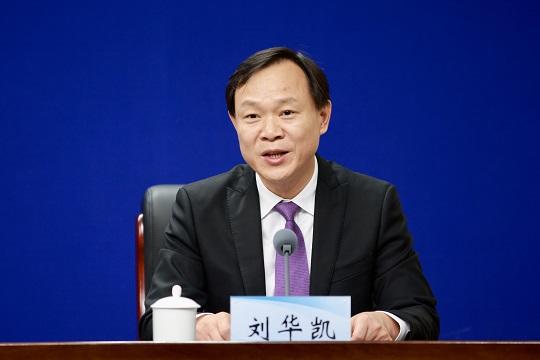
Liu Huakai, Chairman of Zhengzhou Airport Garden Expo Park Management Co., Ltd.
Thank you for your question. On June 19th, Zhengzhou Airport, Henan Province held a press conference of Yuanbo Eco-city, a 21-city linkage project, and announced the overall planning and design scheme of Yuanbo International Eco-city. Yuanbo International Eco-city is located in the core area of the airport, with a planned area of more than 30 square kilometers and a green area of over 2 million square meters. It has made great efforts to continuously cultivate Yuanbo Eco-city in the fields of urban cultural tourism, cultural and creative industries, high-end business and innovative fourth-generation housing.
According to the plan, the International Cultural Exchange Center is located at the core of Yuanbo Eco-city. It is a large-scale comprehensive international cultural exchange center planned and built with an international vision, which gathers the potential energy of business, culture and commerce, and leads the city’s multicultural exchanges and cooperation. It integrates the functions of cultural creative office, cultural exchange conference, public cultural activity space, cultural experience hall and so on, and creates a globally influential cultural exchange and innovation source, a leading emerging industry derivative and an international cultural and artistic exhibition highland. At the same time, it is a large-scale comprehensive body integrating conferences, exhibitions, hotels, banquets and offices, with a total construction area of about 65,000 square meters, of which the first-phase construction area is about 15,000 square meters. The functional facilities are designed with reference to international high-star hotel standards, which can meet the needs of holding high-standard, comprehensive and international conferences and cultural exchange activities at the same time, and provide related supporting services such as accommodation, catering and exhibitions.
On the whole, we expect to shape aesthetic architecture, upgrade aesthetic experience, create aesthetic value, link domestic and foreign industries and people with high-quality cultural exchanges, find the driving force for the long-term development of the city, activate the potential of the future cultural and creative center, and forge an international cultural and artistic exchange center with great vitality, high standards; At the same time, bringing it into the global thinking thread of urban renewal and location development, and continuously displaying the strong potential and cultural attraction of the airport area to the outside world, will become a catalyst to continuously stimulate the green development and humanistic vitality of the airport area, enhance the industrial value and urban attraction, and promote the overall improvement of regional attraction, influence and innovation value.
Today, we take this press conference to launch this architectural design solicitation activity for the whole world, hoping to gain a wide range of forward-looking, innovative and implementable architectural design schemes, so as to make a beautiful blueprint "land into a scene", build an iconic, high-grade and high-quality international cultural exchange center and become a new business card of Zhengzhou Airport. thank you
Ping Ping, Deputy Director of Propaganda Department of Provincial Party Committee and Director of Information Office of Provincial Government
Thank you publishers! That’s all for today’s on-site questions. If you have other concerns that need further understanding, you can contact the relevant publishing units for in-depth interviews after the press conference.
Media friends, the essence of design is innovation, creativity and creation, which can empower industry, beautify urban and rural areas and support development. High-quality architecture is flowing art and solidified music, and it is the core competitiveness of the city. Launching Zhengzhou Airport 2023 "Silk Road in the Air" International Competition for Urban Design and Creative Architecture, and leading urban modernization with architectural design, is not only an important measure to implement the construction of "Designing Henan", but also a concrete practice for our province to actively integrate into the new development pattern and accelerate the construction of modern innovation system, modern industrial system and modern urban and rural system. Here, I hope that the news media will continue to pay attention to and support this international competition, focus on the characteristics and highlights of the competition and the effectiveness of the measures, do a good job in all-round and multi-angle publicity and reporting, tell the story of "designing Henan", empower high-quality development with high-level design, make Zhengzhou Airport better connected with the world, and create a good atmosphere for vigorously promoting the practice of Chinese modernization in Henan!
This is the end of today’s press conference. Thank you! Thank you, journalists and friends! Goodbye.




